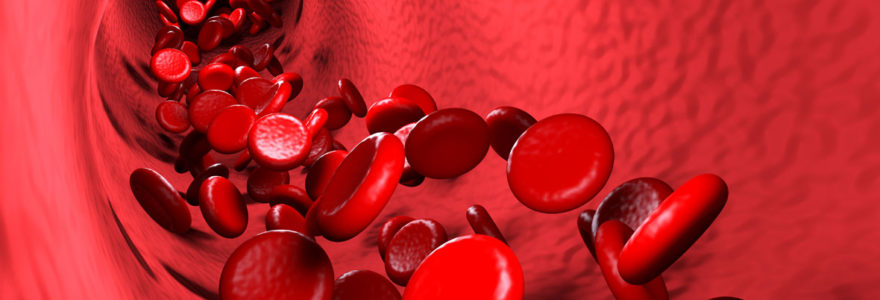The circulatory system, comprising the heart, blood vessels, and blood, serves as the highway that delivers essential nutrients, gases, and hormones to cells throughout the body. Optimal blood circulation is therefore critical for the proper functioning of all bodily systems. However, issues like poor circulation can have detrimental impacts on health, leading to problems ranging from minor discomforts like cold extremities to severe complications such as cardiovascular diseases, peripheral artery disease, and even stroke. Understanding how to enhance blood circulation is thus vital for overall well-being. This article delves into the world of circulation-boosting medications, exploring their mechanisms, benefits, and potential drawbacks.
What are Circulation-Boosting Medications?
When discussing medications that can enhance blood flow, like Daflon 500 mg - SERVIER, it's important to consider what these compounds are and how they have evolved over time.
Circulation-boosting medications are pharmacological agents designed to improve blood flow through various mechanisms. These range from drugs that relax and widen blood vessels, known as vasodilators, to anticoagulants that prevent blood clotting. These medications are often prescribed to treat conditions like hypertension, peripheral vascular diseases, and even specific types of heart disease.
The advent of circulation-boosting medications can be traced back to the early 20th century, although primitive forms of blood circulation treatments have existed for centuries. Nitroglycerin, for example, was initially used as an explosive but later found its medical application as a potent vasodilator in the late 19th century. Subsequent advancements in pharmacology led to the development of other vasodilators, anticoagulants like warfarin, and antiplatelet agents like aspirin. Modern medicine has since continued to refine these medications, making them more effective and safer.
How Do They Work?
Understanding the inner workings of these drugs can help individuals make informed choices regarding their health.
Mechanisms of Action
Circulation-boosting medications work through various mechanisms, depending on the type of drug and the condition it aims to treat. Vasodilators, for instance, relax the smooth muscle cells in the walls of blood vessels, allowing them to widen. Anticoagulants interfere with the blood clotting process, thereby reducing the risk of blockages. Some drugs may even improve the pumping efficacy of the heart itself, enhancing cardiac output.
The Role of Vasodilation
Vasodilation plays a pivotal role in the action of many circulation-boosting drugs. By dilating the blood vessels, these drugs reduce vascular resistance, which in turn lowers blood pressure and improves blood flow. This makes it easier for the heart to pump blood, thereby enhancing circulation to various tissues and organs.
Key Benefits of Circulation-Boosting Medications
The benefits of improved circulation through medication are numerous and varied, touching on several aspects of health and well-being.
Improved Oxygen Delivery to Tissues
One of the primary benefits is the enhanced delivery of oxygen to tissues. This is particularly important for high-energy demanding organs like the brain and muscles, which rely on a constant supply of oxygen for optimal function.
Enhanced Nutrient Supply to Cells
Alongside oxygen, improved circulation also facilitates the efficient transport of nutrients to cells. This is crucial for cellular metabolism and function, affecting everything from energy production to waste removal.
Support in Treating Peripheral Vascular Diseases
Medications that improve circulation are often prescribed to manage peripheral vascular diseases, conditions characterized by restricted blood flow to extremities. These drugs can alleviate symptoms like leg pain, numbness, and reduce the risk of ulcers and gangrene.
Boosting Cardiovascular Health
These medications are also instrumental in supporting cardiovascular health. By enhancing blood flow and reducing stress on the heart, they contribute to the prevention and management of cardiovascular diseases like hypertension and coronary artery disease.
Supporting Wound Healing and Cellular Repair
Improved circulation can also expedite the wound healing process. Better blood flow ensures that cells involved in tissue repair and regeneration receive the oxygen and nutrients they need, thereby speeding up recovery.
Potential Side Effects and Considerations
While these medications offer numerous advantages, it's crucial to be aware of their potential downsides.
Common Adverse Reactions
Possible side effects can include headaches, dizziness, and gastrointestinal issues. In some cases, excessive vasodilation can lead to hypotension, or abnormally low blood pressure.
Drug Interactions and Contraindications
Circulation-boosting medications may interact with other drugs, leading to adverse effects or decreased efficacy. They may also be contraindicated in certain conditions, such as specific heart problems or during pregnancy.
Who Should Avoid These Medications?
Individuals with low blood pressure, certain types of heart disease, and those who are pregnant or breastfeeding should generally avoid these medications unless advised otherwise by a healthcare provider.
Emerging Research & Innovations
The field of circulation-boosting medications is continually evolving, offering new solutions and alternatives for improved health.
Latest Advances in Circulation Medications
Recent research is focusing on creating drugs with fewer side effects, longer-lasting impacts, and better-targeted delivery systems. Nanotechnology and personalized medicine are some of the avenues being explored.
Natural Alternatives and Supplements
There is also increasing interest in natural alternatives, such as herbal supplements and dietary changes, which may improve blood circulation without the need for pharmaceutical intervention.
Emphasizing the Importance of Informed Choices
Given the complexities surrounding these medications and their potential impacts on health, it's crucial for individuals to consult healthcare professionals for personalized advice. By staying informed and making mindful choices, one can take steps toward enhanced blood circulation and, by extension, better overall health.


 Good health cannot be bought, but rather is an asset that you must create and then maintain on a daily basis.
Good health cannot be bought, but rather is an asset that you must create and then maintain on a daily basis.
